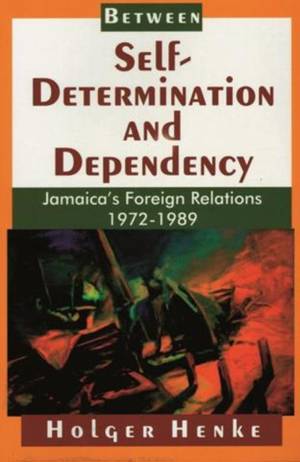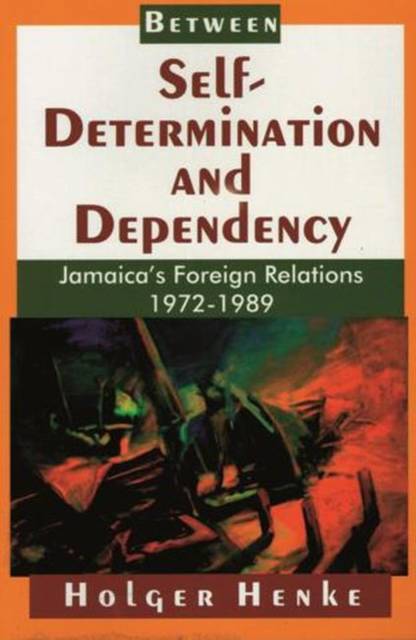
Vous voulez être sûr que vos cadeaux seront sous le sapin de Noël à temps? Nos magasins vous accueillent à bras ouverts. La plupart de nos magasins sont ouverts également les dimanches, vous pouvez vérifier les heures d'ouvertures sur notre site.
- Retrait gratuit dans votre magasin Club
- 7.000.000 titres dans notre catalogue
- Payer en toute sécurité
- Toujours un magasin près de chez vous
Vous voulez être sûr que vos cadeaux seront sous le sapin de Noël à temps? Nos magasins vous accueillent à bras ouverts. La plupart de nos magasins sont ouverts également les dimanches, vous pouvez vérifier les heures d'ouvertures sur notre site.
- Retrait gratuit dans votre magasin Club
- 7.000.0000 titres dans notre catalogue
- Payer en toute sécurité
- Toujours un magasin près de chez vous
Between Self-Determination and Dependency
Jamaica's Foreign Relations 1972-1989
Holger Henke
Livre broché | Anglais
53,45 €
+ 106 points
Description
The work analyses the nature and progress of Jamaica's foreign relations during the period 1972-1989. The author examines the country's attempts to come to terms with the limits imposed and possibilities offered by the shifting internal and external power constellations. The central argument is that the relative autonomy of the Jamaican state with regard to the conduct of foreign relations was reduced because of the evolution of a new international regime. Henke argues that this regime in effect prevented the political, social and economic experimentation which was envisioned at the beginning of the period under examination.
The text employs a holistic perspective, attempting to delineate the political economy which underpinned Jamaica's foreign policy during this time. It departs from earlier studies which have tended to focus on the diplomatic history of the country's foreign relations without illuminating the factors which defined the context of state action.
Spécifications
Parties prenantes
- Auteur(s) :
- Editeur:
Contenu
- Nombre de pages :
- 240
- Langue:
- Anglais
Caractéristiques
- EAN:
- 9789766400583
- Date de parution :
- 01-08-00
- Format:
- Livre broché
- Format numérique:
- Trade paperback (VS)
- Dimensions :
- 153 mm x 230 mm
- Poids :
- 299 g







